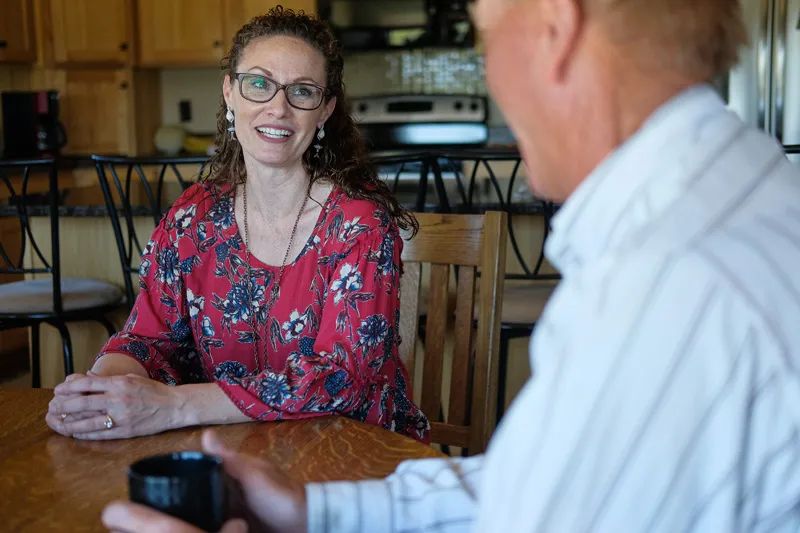
Weathering the Quiet Storm
Courtney Kibblewhite is helping rural communities face mental health challenges head-on
Courtney Brown Kibblewhite would prefer to stay out of the limelight. But the vice president of Northern Broadcasting knows that by revealing her own vulnerabilities, it might help others.
Courtney owns and operates the family business alongside her brother Colter Brown. She is also the driving force behind “Beyond the Weather” — what she describes as a “social movement” to grow mental health awareness in the region’s rural communities. Ads for Beyond the Weather that pepper the Northern Ag Network’s broadcasts and testimonials are shared at beyondtheweather.com.
“What we noticed, especially in the ag community, is that we can talk for hours about things like the weather, but somehow we can’t get to the hard stuff,” Courtney says, explaining the name.
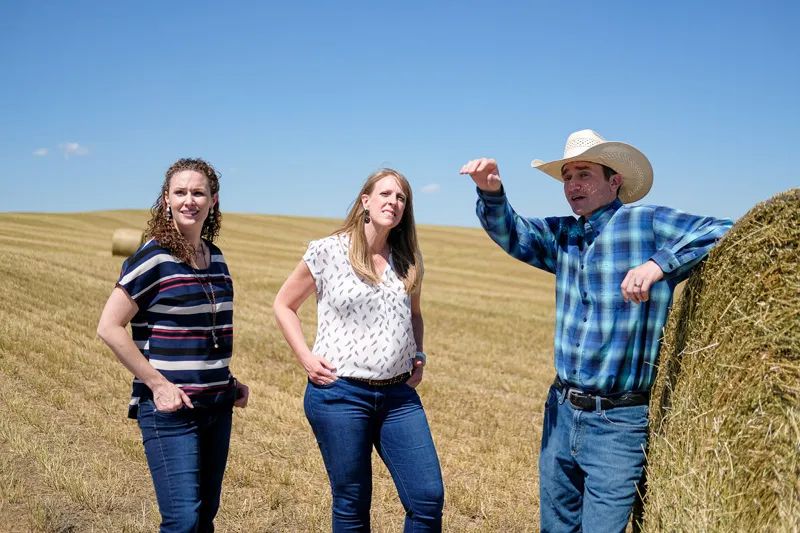
While Montana’s suicide rate has long ranked among the nation’s highest — in large part attributed to the state’s remoteness and lack of mental health resources — Courtney has intentionally shied away from dwelling on suicide. In fact, of those who have signed on for free counseling sessions through Beyond the Weather, only 12 to 15 percent are even referred for further psychiatric help, she says.
“The majority just needed to talk to someone outside the family,” she says.
Courtney knows firsthand the stigma associated with mental health struggles, particularly in rural Montana where the culture lives by the philosophy of “buck up” and “suck it up.”
She traces her own mental health struggles, in part, to a tragic event — a murder-suicide that took place in her extended family long before she was even born. She believes the trauma shaped her family’s aversion to speaking about tough subjects, an approach that she feels later played into her own depression, anxiety and eating disorders.
She realizes the monumental task she has ahead, but feels the message is so important that she’s willing to shed her own cloak of privacy to reach others who suffer silently.
“The movement is about empowering people to help each other and to help their communities,” she says. “It’s amazing how naming the problem takes the power out of the rumors.”
That’s when she turns to a large touchscreen at Northern Broadcasting and clicks on several brief videos on the beyondtheweather.com website.
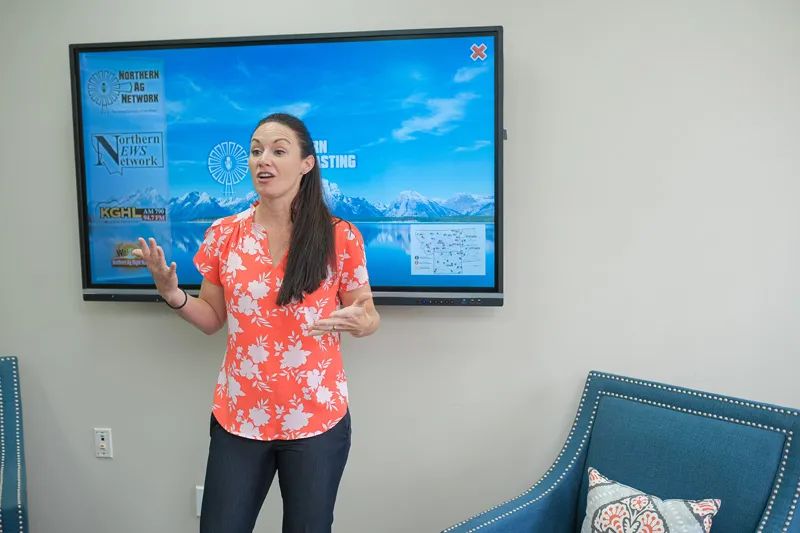
“We wanted it to be your peers talking to you, not actors,” she says. “These are people who are not comfortable talking about it. We want to normalize this. That’s our hope.”
There’s Manhattan rancher Walt Sales, who questions the old adage of “pulling yourself up by the bootstraps.” He asks, “But what happens if you can’t even find your bootstraps?”
Then there’s Jenny Stovall, who married into a ranching family and reflects on the “overwhelming expectations” she perceives.
“You might feel alone but you’re not alone,” she says.
Another, Dave Kelsey from Molt, has been able to manage the stresses of ag life himself but offers thoughts for helping others.
“Reach out and say ‘I’m here to talk to you, there’s help available,’” he says. “Volunteer with 4-H or the FFA instead of tunneling in on your own operations.”
Knowing that your neighbors face many of the same challenges is often very helpful, but Courtney says Beyond the Weather goes further, offering free online counseling sessions to farmers and ranchers through Frontier Psychology.
“It’s all teleconference,” she says. “That can be a big deal for some people if they’re super remote.”
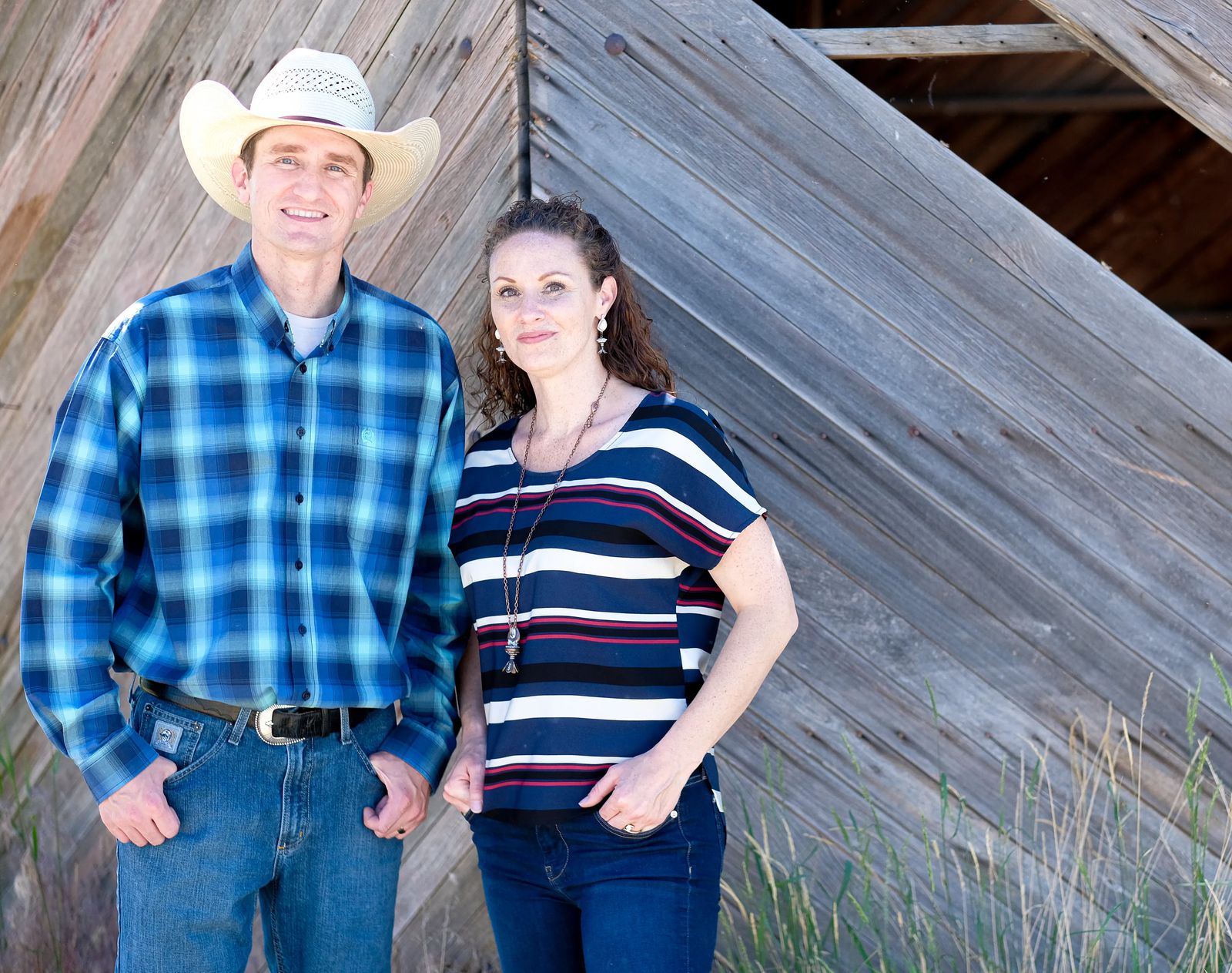
The nonprofit also sponsors speakers on mental health issues. But above all, Courtney focuses her energies on reducing the stigma associated with the topic.
“I’ve loved going around to talk about it,” she says. “It feels very vulnerable and scary — and I’m not an expert — but sometimes you really connect with people.”
As the middle child of the well-known ag broadcaster Taylor Brown, Courtney’s personal challenges help her get her message across.
“I have always been an independent person,” she says. “As a teen I was determined I was going to do my own thing. And it was going to be someplace else.”
Attending school in Huntley, she says, “I was raised in 4-H and FFA.” She was also deeply rooted in the Brown’s family ranch in Sand Springs. That’s when she found herself caught between two cultures, and yet not fitting into either.
“Who are you?” she remembers asking herself. “A town kid or a ranch kid?”
When her parents became aware of her malaise, her mother took her to a pediatrician who prescribed medication. At times, Courtney tried to convince herself that the meds were no longer necessary, that she “should be stronger than this.” But she discovered that strength alone cannot heal, particularly when it comes to depression and other mental illnesses.
In hopes of helping their daughter, the Browns sent her to boarding school in Maryland. For Courtney, it was the first time she was known for herself and not as the daughter of a well-known figure.
“I got to have my own success. After two years, I was elected president of the school. I did that,” she says, stressing the “I.”
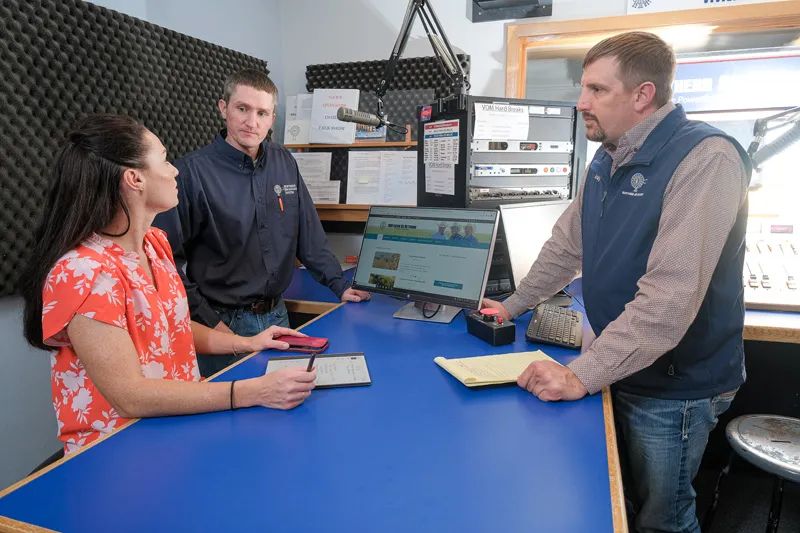
She went on to earn her bachelor’s degree in communications and international studies at Northwestern University and worked in human capital consulting in Chicago. All the while, the experiences of her younger self cultivated her interest in identity issues and psychology.
“I’ve always been looking for meaning and purpose,” she says.
That long-held fascination with identity led her to U.C. Berkeley, where she enrolled in a doctoral program for organizational behavior.
“I would probably still be there if they had not failed me,” she says. Her phrasing is intentional, as she still questions the factors that put an end to her studies there. “But now I’m grateful because it sent me on a path back to Montana.”
Before circling back, Courtney also made real on her desire to travel the world. She studied in Uganda and at one point bought a one-way ticket to India, where she stayed in an ashram, a place for a spiritual retreat and contemplation.
“Meditation was a huge gift for me,” she says. “I learned that you are not your thoughts. Your thoughts come and go.”
Describing herself as a “recovering perfectionist,” she says it was several years after returning to help with the family business — something the younger Courtney would never have considered — that a random interview on the Northern Ag Network planted a seed. It was 2021, one year after COVID-19 struck, when people’s focus had expanded from the pandemic to its after-effects on mental health. That’s when the Northern Ag Network featured an interview with Eric Arzubi of Frontier Psychiatry. Taylor, well aware of his daughter’s interest, suggested she pursue the topic further.
“My dad is very good at seeing opportunities,” she says, smiling.
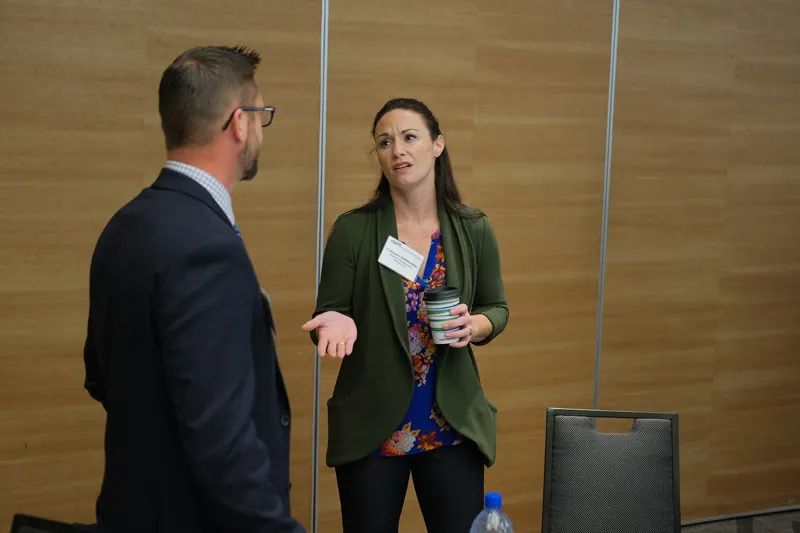
Inspired by the thought, she wrangled early funding from the Montana Department of Agriculture and later the Arthur M. Blank Family Foundation.
Over time, Taylor, too has grown more aware of the silent epidemic.
Farm and ranch families are quick to ask for help when it’s branding time, he says, yet they won’t ask for help or even talk about the stressors that put many folks in a tailspin.
“They’re just on the razor’s edge out here,” he says. “They’re just surviving.”
Even before the station launched ads for Beyond the Weather, he considered the station’s broadcasts as a point of hope for that farmer out on the tractor, alone with his thoughts.
“Hope is great, but it’s not enough,” Taylor says.
“It (Beyond the Weather) really pairs nicely with what we’ve been trying to do every day,” Courtney adds.
As Taylor speaks of stresses common to the ag community, he admits that broaching the topic doesn’t come easily — even for him.
“How do I say something to these guys — they’re my peers?” he asks. “But I care.”
One friend questioned him about the radio station getting into this “woke movement.” Over time, that friend has softened on the topic.
“I didn’t get anywhere that (first) day,” Taylor says. “But I have since.”
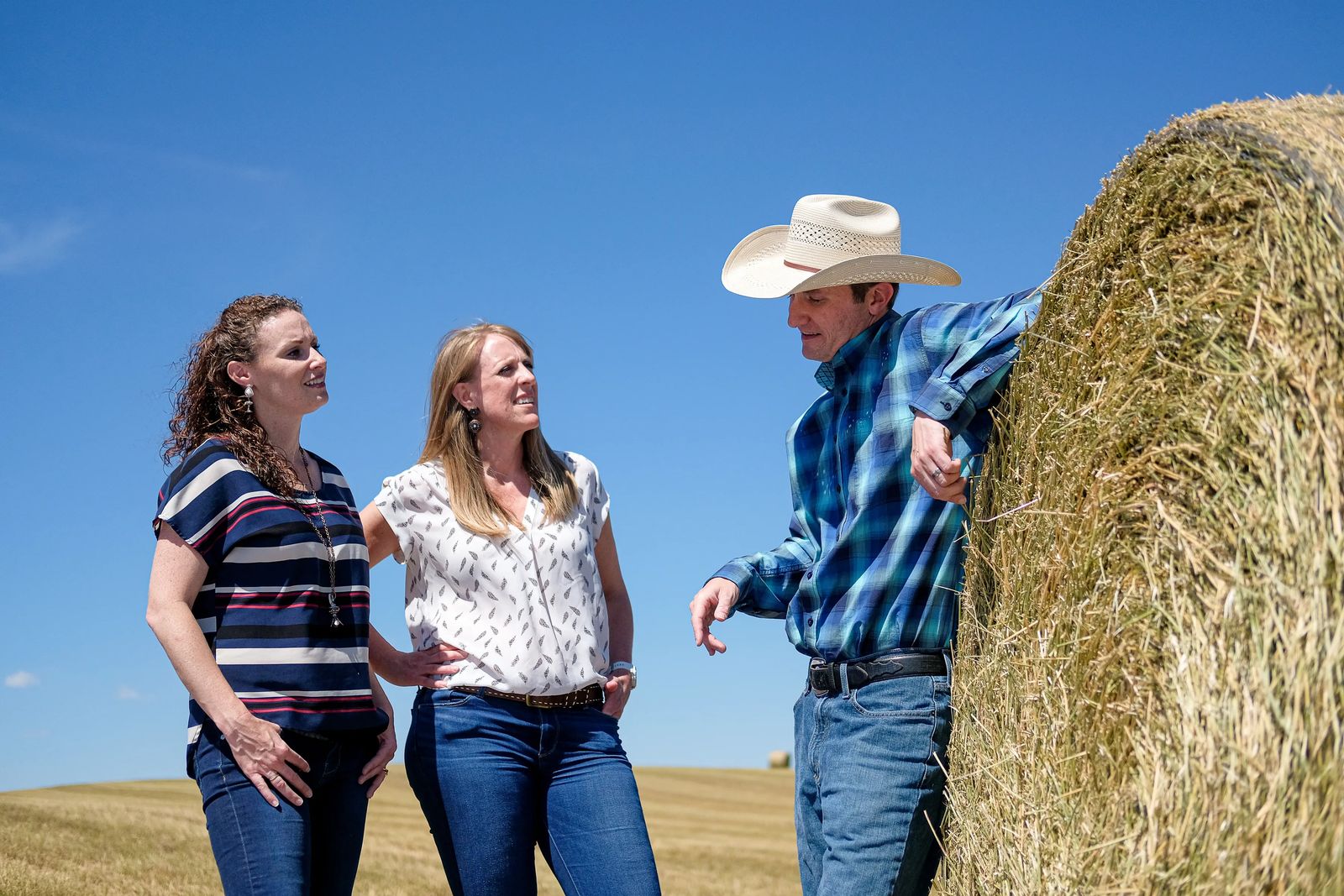
After four years of promoting Beyond the Weather, Courtney’s role has come to consume more hours than she might admit. But she has no regrets.
“It’s probably taking away from the profits of our business, but to me it’s so important,” she says. “I’m to a point where helping people means more than the money.”
Now in her late 30s, Courtney feels that her varied roles are melding into what she’s long meant to be doing.
“I feel like the different aspects of my identity are coming together,” she says.
And that identity has now expanded to include her immediate family: her husband, a native of Wales, who she met while taking his scuba diving class in Thailand; a daughter who is 8; and a son, 6.
As a mother, Courtney hopes she can help her own children talk openly about anything that’s bothering them. She’s discovered age-appropriate books and other tools to help the next generation navigate upcoming challenges — whatever they may be.
“If you don’t talk about it, it can take up a lot of space in your mind,” she says. “What we don’t say can be just as powerful as what we do say.”











